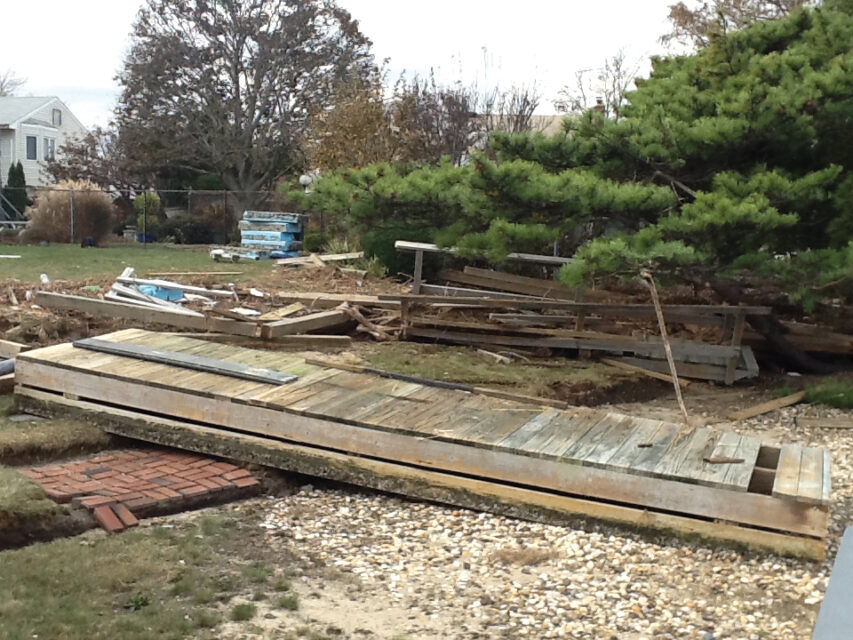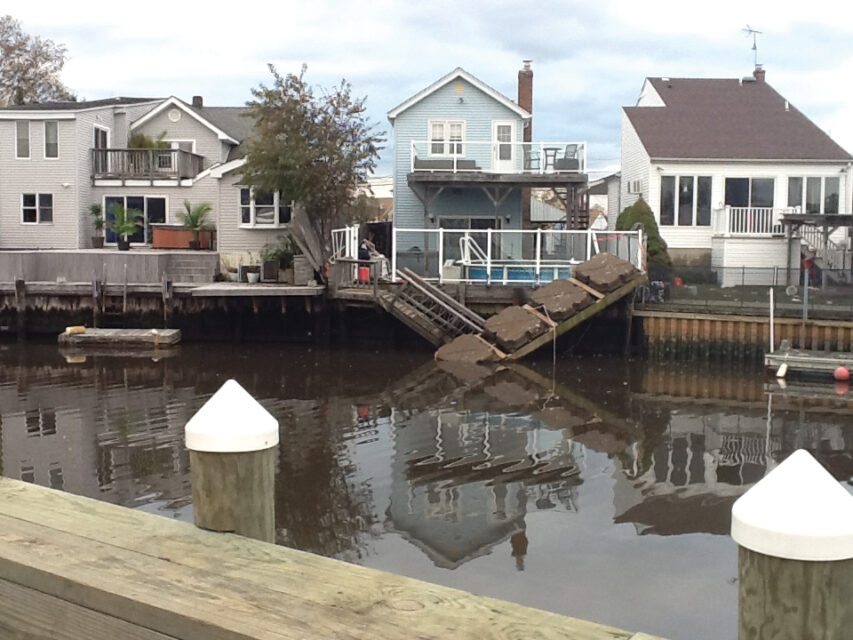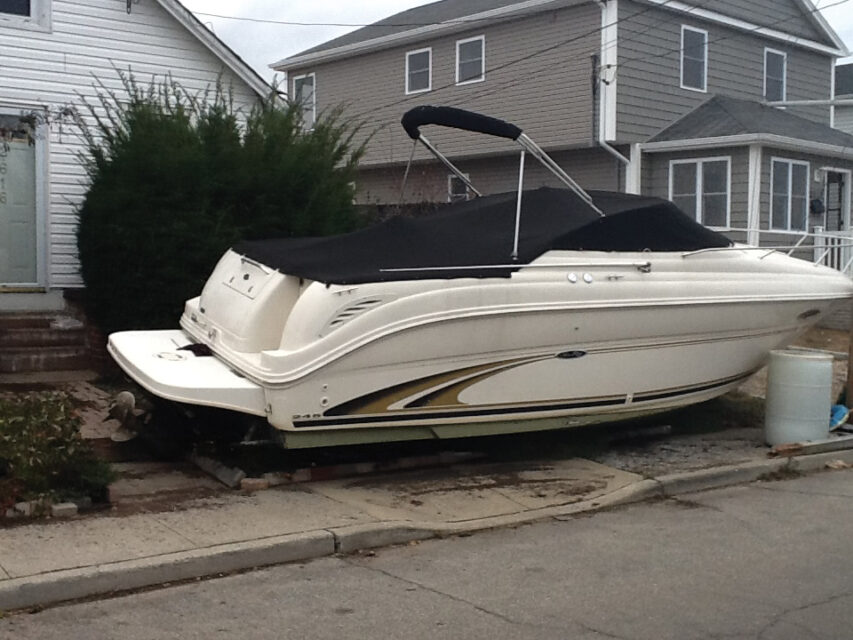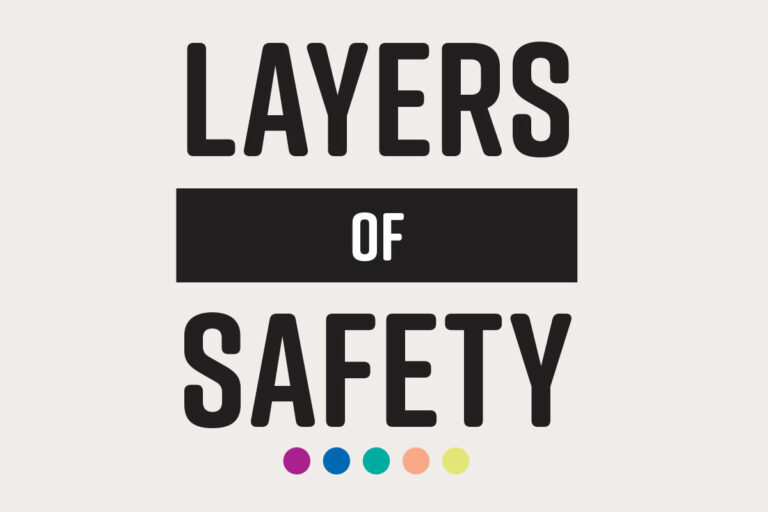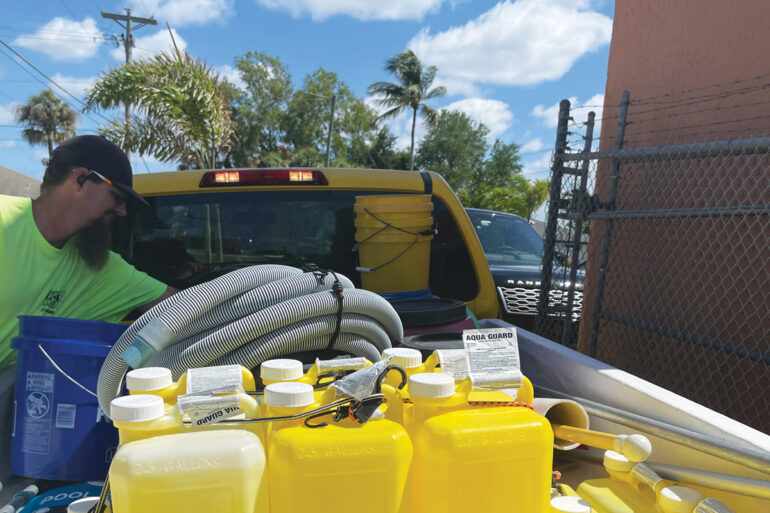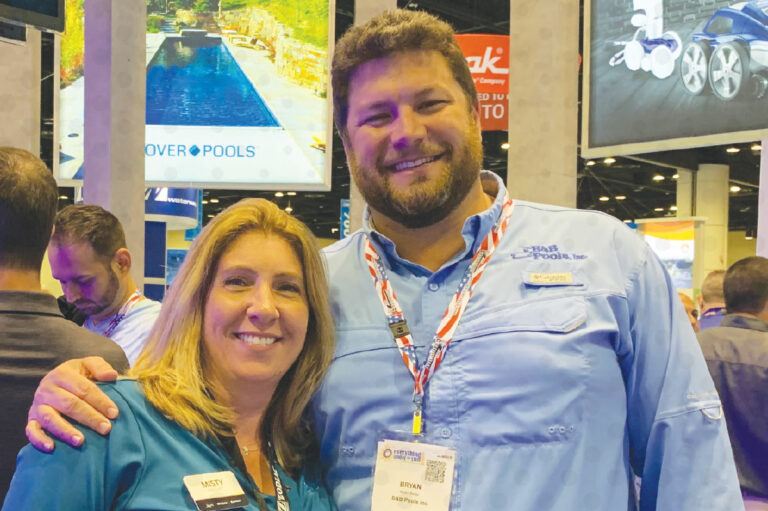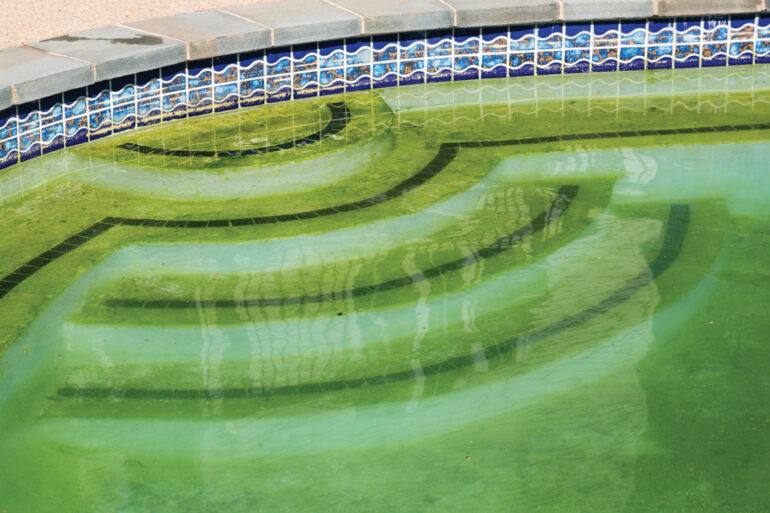Hurricane Sandy’s Wake of Devastation
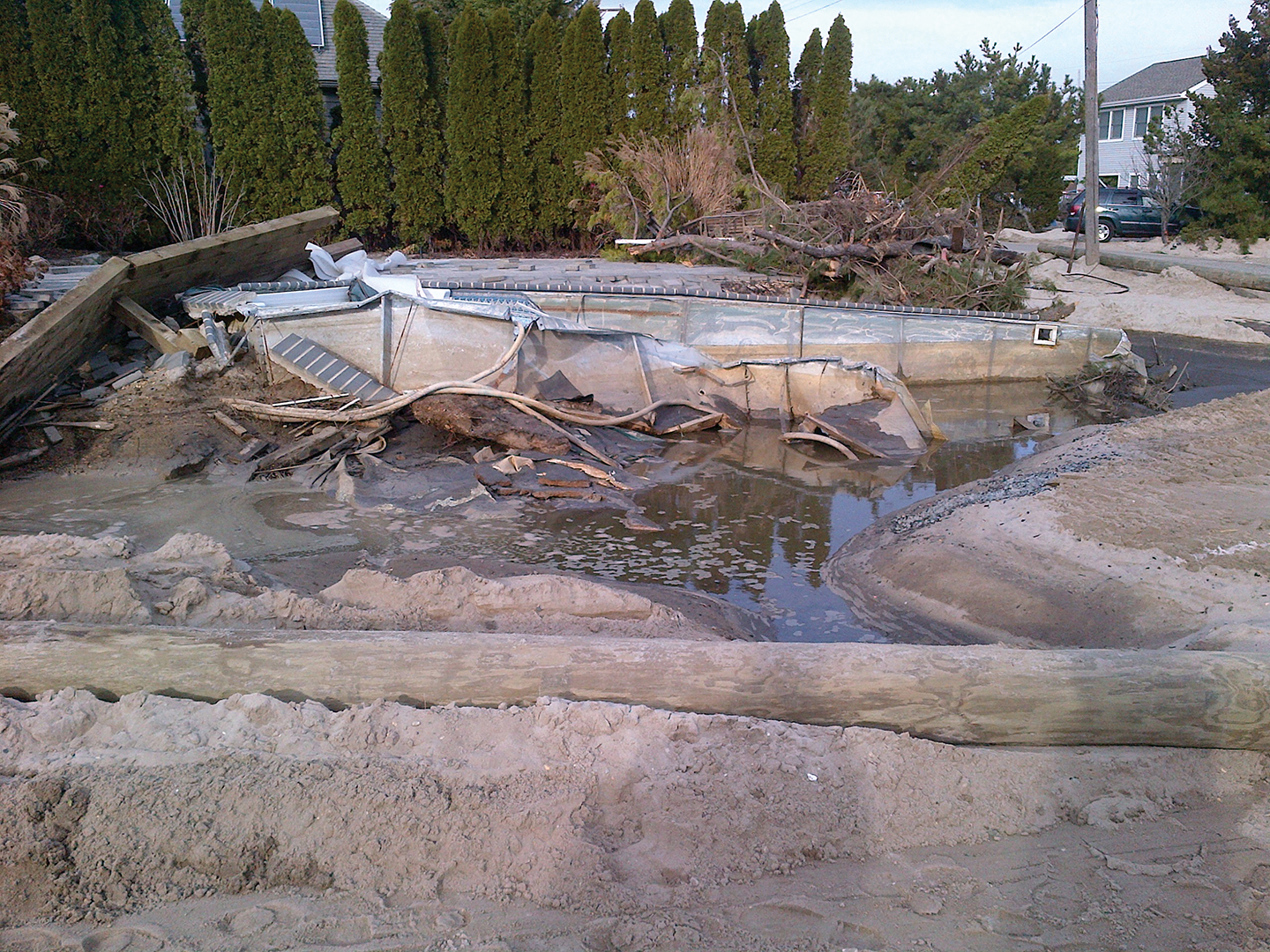
When you live near the ocean, it’s always in the back of your mind that you could see “the big one,” or the storm to end all storms. But after a few false alarms and storms that seem bad at the time, you build up a resilience and resistance to news of something heading your way. You prepare as much as you can — gathering flashlights, batteries and putting up a few sandbags — but you don’t realize until it’s too late that the big one is here.
That’s what happened to Dean Salvani Sr., owner of Backyard Masters on Long Island, N.Y. Salvani and his family endured hurricane Irene in August of 2011 and felt prepared when yet another hurricane, Sandy, was barreling towards them. Salvani, his wife, Sherrie, and son, Derek, stayed in their home, which was in a mandatory evacuation zone, only to rush out, leaving everything behind, when the wind and water started tearing things apart.
“Irene was actually a very poor example [of a hurricane],” says Dean Salvani Jr. “Don’t get me wrong, there was a lot of damage [from Irene], but New Yorkers are resilient and they put out this tough guy image. I think a lot of people built up this misconception from [Irene]. They thought, ‘Oh, we’ll stack up our batteries, we’ll be prepared, we’ll be able to weather [Sandy].’”
Down the coast in New Jersey, Theodora Sergiou, vice president of Nicholas Pools, weathered the same hurricane with her husband and three children at her home in Toms River. Toms River is across the bay from Seaside Heights where images of its mangled Casino Pier Jet Star roller coaster sitting in the ocean ran on every network news program.
“The whole community was basically in shock for the first three days after the storm,” Sergiou says. “Nobody could believe the extent of the damage. You hear a storm is coming so many times and then all you get is a little wind and rain, but what came was so unexpected.”
What came was the second most damaging hurricane to hit the United States after Katrina. According to the National Hurricane Center, Hurricane Sandy, which made landfall on the east coast on Oct. 29, 2012, did an estimated $50 billion worth of damage and caused 72 fatalities in the U.S.
Sergiou doesn’t live on the water in Toms River, and though her brick home sustained no damage, she says the windows rattled and shook, keeping the family on edge until the storm passed. Now, her children (ages 14, 12 and 9) sleep on the floor in her bedroom when they hear a bad storm. “They have friends who lost their home and still aren’t back in their homes, so they know firsthand the devastation and what it can cause,” Sergiou says.
Dean Jr. and his employees left work a little early that Monday to ensure they could all get home and battened down. He drove across the bridge to his home in the Bronx, knowing he most likely wouldn’t be able to get back to Long Island until after the storm. As the weather picked up that night he watched his double-paned, shatterproof, Anderson windows blow in and out, “They were stretching before your eyes,” Junior says. “The Irene winds weren’t that high. I didn’t think I had to tape my windows, but I started to tape them — I’d put one piece of tape up and run away from the window. It was really scary.”
The worst part of the storm for Junior, though, was the intermittent texts and phone calls he was getting from his mother in her home on a canal coming off the East Bay.
“They were texts you would expect from a loved one on a plane they thought was going down,” Junior says. “That was really hard because I felt so helpless. That’s when I started to panic.”
His mother pleaded with him to call emergency services to come and help them, but those services were already overwhelmed with calls and it was futile.
“Just to hear the panic on the other end of the phone, ‘Oh my god Dean, the water’s coming in,’ that broke my heart,” Junior says. “I cried that whole night. You just had to pray. People who never prayed in their life prayed that night.”
In the house, Dean Sr. was listening to his docks crash in the waves. He has a lower floating dock, another stationary dock four feet higher and then a ramp that leads to a paved patio. During hurricane Irene, the water came over his lower dock.
“I thought, ‘I’ll still have four feet before it breaches the top deck,’” Senior says. He couldn’t see much in the dark and didn’t want to get close to any windows, but he could hear the docks riding up and down the pilings.
“All of a sudden, I didn’t hear the docks anymore,” Senior says. “That’s because they blew away, like a postage stamp. We found the docks all the way down the canal, blocks and blocks away.”
When the water crested his top bulkhead, he knew it was time to leave. “We got out in the nick of time,” Senior says. “If I had waited another 15 minutes, I would’ve lost my cars.” They drove 10 minutes to John F. Kennedy high school and spent the rest of the night huddled in the parking lot with everyone who had stayed in the neighborhood.
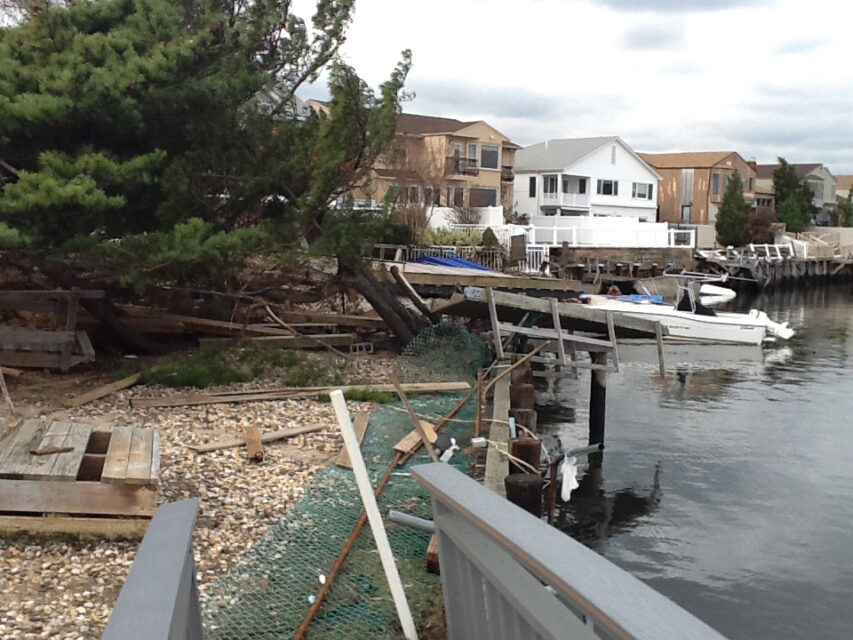
The next morning the magnitude of what happened began to seep in.
“We went and helped at the shelters,” Sergiou says. “It was really heartbreaking watching people come in who were expecting
to go back home being told they could not. Then slowly finding out how bad things were and realizing that their house was flooded or gone — some people’s homes floated out to sea.”
It was three days before Dean Jr. was able to cross the bridge from the Bronx into Long Island and what he saw when he got there was nothing like the place he’d left just 72 hours earlier.
“You look down the block one way and look down the block the other way and see couches, tables, chairs, refrigerators, boilers — it looked like the streets were giant dumpsters,” Junior says.
Then there was his parents’ house. Twenty years ago, Dean Sr. walked into the backyard of this home and told the realtor he’d take it, without stepping foot inside. He spent the next 20 years remodeling and rebuilding, little by little, to make it the family’s dream home.
“That’s how my dad is, he likes to break everything down and rebuild,” Junior says. But Sandy destroyed his years of work in a matter of hours.
The docks were gone, his bulkhead collapsed along with the brick patio. His jet ski disappeared, never to be found again.
“When you opened the door to my parent’s house, it smelled like the house was dipped into the ocean,” Junior says. The water came up four feet inside their home. Everything on the bottom floor had to be replaced.
“I lost all my appliances, hot water heater, boiler, the base cabinets in our kitchen, the floors,” Senior says. “I had to rip the sheet rock out to the two-by-fours. Then we had no heat, no hot water and no lights for almost two weeks. I went and got a generator. I had a couple of laborers and we tore everything out of there rather quickly. I had tadpoles in the house.”
During Hurricane Irene, the Salvani’s kept their boats on the dock at their home. Junior’s boat (which he’d only had for a short time) was destroyed and Senior’s boat cut up the dock so badly that it had to be replaced. For this storm, Senior decided to protect his dock and boat by storing it in a marina two peninsulas down from his home.
“All of those boats wound up in a giant pileup,” Junior says. “It looked like a tidal wave went right over the marina and wiped it out.” Fortunately, they were able to repair the boat.
Sandy didn’t leave the businesses unscathed either. Nicholas Pools & Spas lost power for two weeks.
“We had some trees down that took out a few fences, but we were very blessed to have no other structural damage,” Sergiou says. She tried to post their limited hours on the company’s website and Facebook page, which she managed from her home that did not lose power.
The three front windows (three-by-twelve-foot panes) at Backyard Master’s Farmingdale location blew out with such force that some glass shards went all the way through its spas to the back of the shells. Of course, the spas on display in the window were the top of the line Artesian Spas’ Platinum Elite series. Looters concerned Junior while he waited to get back to Long Island and he’s thankful his employees periodically checked to make sure things were okay.
Nicholas Pools & Spas offered up its empty warehouses for a local church to use to store relief supplies.
“Everyone did whatever they could,” Sergiou says. “I went to Target to buy some things that our shelter needed, and when I told them what I was doing they cut the price in half. You saw the whole community just pull together.”
Dean Sr.’s home was the hardest hit out of the Backyard Masters workers, so employees came to help with the cleanup.
“Luckily, I had the funds and the manpower to do it,” Senior says. “I got right to it. I’m resilient and I love where I live. But, a lot of people left who had no choice. They had to abandon their homes because they were destroyed.”
When the shock and initial cleanup started to subside, both businesses had to deal with the unprecedented needs of their customers.
“There were a lot of pools damaged,” Sergiou says. “From trees falling through covers, branches ripping through covers and liners, flooded pool equipment, electrical equipment needing replacement and sand just sweeping over and coming into the pools.”
The company immediately started checking with its manufacturers and suppliers to make sure that it knew exactly how to instruct its customers.
“Our electrician told us to inform as many people as we can not to try and turn the equipment on, because it might run correctly at first but may catch fire, which can create a lot of problems,” Sergiou says. “We were trying to get the word out to just let us look at it. We offered free inspections and free estimates.”
On top of the damage done by the water, wind and salt, there was also a gasoline spill.
“There was a marina that had petrol gasoline tanks to supply gas to the boats,” Sergiou says. “It was torn off of the marina and got in the water. A lot of that ended up in people’s pools and backyards. We had to determine not only if this was saltwater flooding and if the pool can be cleaned and salvaged, but we also tried to find out if it was in the area where the gasoline was. The guys were bringing back paperwork that smelled like gasoline.”
Dean Jr. says his spa department got back on its feet right away.
“[Using a hot tub] numbed the pain and relieved some of your stress,” Junior says. “The spa was a way for people to forget about what happened for at least 45 minutes. We’re up from last year if I were to compare numbers.”
It’s taking longer for people to be able to address their pools, however.
“Anybody who had severe damage had to work from the inside out,” Junior says. “Still to this day, people don’t have heat and can’t take hot showers.”
Both companies are expecting an influx of business in the coming months and years as more and more customers start fixing the damage in their backyards.
“We have some people right now who it’s not even on their mind, they need to fix their homes and then possibly next year worry about their backyards,” Sergiou says. “We have a lot of customers coming in for spas now. The water just picked the spas right up and slammed them down again, so we saw a lot of damage to spas also.”
Sergiou says that Nicholas Pools is preparing for the extra work by hiring more technicians and getting its service department geared up earlier than usual. But she knows that they have lost some customers, too, particularly in their pool butler service.
“We had a lot of customers on the water and that was their summer home,” Sergiou says. “They wanted the pool ready whenever they were coming down. We’d take care of the pool and have it ready to go for them. So all those people along the shore that were our customers, they’re not going to be there this year. Some of their homes aren’t there anymore.”
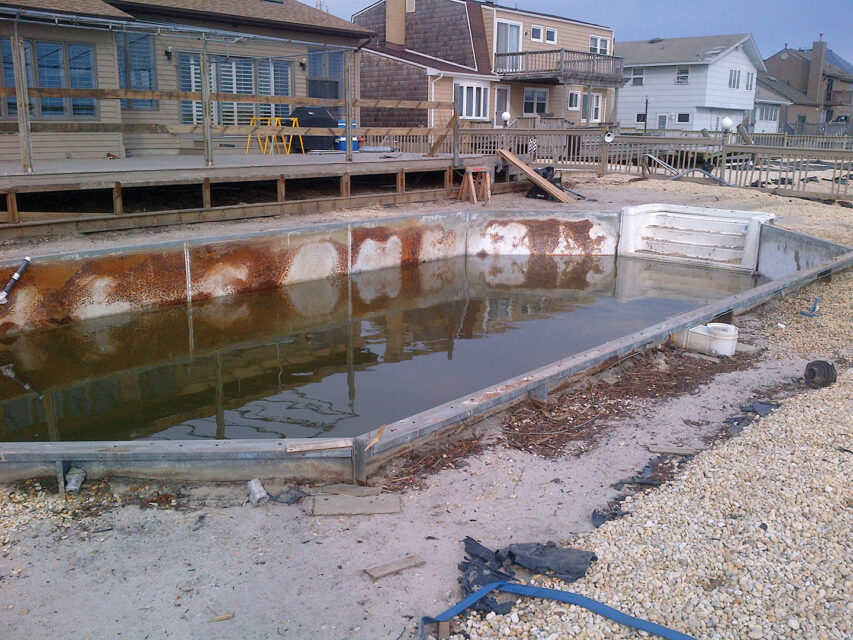
Slowly but surely, the areas impacted by Hurricane Sandy are rebuilding, but there are many challenges ahead and nothing will ever be quite the same. The bureaucracy moves slowly, leaving homeowners with few options sometimes.
“Some people we know, they spent the money to fix their home and now are being told they have to spend another $100,000 to raise it,” Sergiou says. “They’re worried and upset because they don’t have that money. It’s very emotional, a lot of people are going through so much with the houses.”
Dean Sr. says he’s 90 percent done with the work on his home. He’s spent well over $100,000 on repairs; his insurance company just sent him a check for $7,000.
“[Insurance] is like an elaborate Ponzi scheme,” Senior says. “They cover everything that can’t happen. Anything that can happen, they have clauses. Everybody’s having the same problem — [the insurance companies] just don’t want to step up to the plate.”
Every day Sergiou and the Salvanis hear agonizing stories from their customers.
“It’s devastating and heartbreaking listening to customers and hearing everything they went through and what they are going through to repair,” Sergiou says. “Trying to get insurance money or FEMA money or going back and forth with building departments to repair their homes and their backyards.”
Senior finds that they do a lot of counseling on the sales floor. There’s a fraternity of survivors on Long Island now.
“Every day we have customers who come in who experienced the same thing that we are living,” Senior says. “We are embracing each other and trying to help each other. We’re all very sad and worried about the future of Long Island because this is catastrophic. Landmarks that made Long Island famous are gone. When you see the devastation you know that it’s going to be years and years before…I doubt that it will ever be the same.”
They are all also dealing with the fear that this could happen again.
“A lot of people are terrified now every time they hear there’s a storm coming,” Sergiou says. “Just this week there was a storm and we had surges again. People are frightened.”
And with scientists and climatologists predicting global warming could continue to bring stronger and stronger storms, Senior is worried that there will be another big one in his lifetime. “They’re claiming that this could happen again sooner rather than later,” Senior says. But while dealing with the grief and stress, he’s still counting his blessings. “I always say, ‘If you don’t have your family, what do you have?’”

